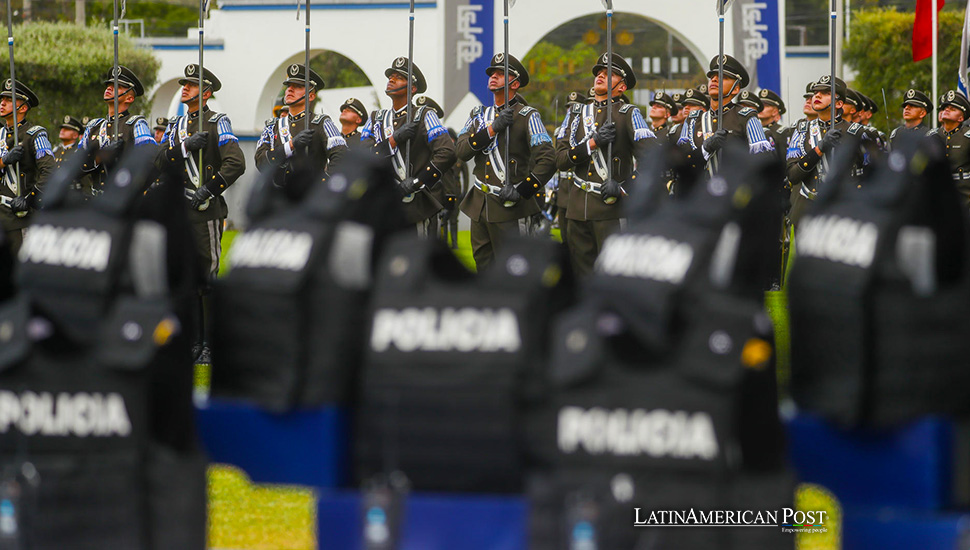Ecuador’s Military Exchange with the U.S. is A Major Strategic Shift

Ecuador is set to exchange Russian military equipment with the United States for new American gear, aiming to enhance its internal security capabilities amid increasing organized crime and internal conflict.
Swapping Russian Military Equipment for U.S. Support
In a strategic move to bolster its internal security apparatus, Ecuador is initiating a process to exchange military equipment previously purchased from Russia with the United States. This exchange, part of a broader security collaboration, reflects Ecuador’s efforts to adapt to the evolving security challenges within the country.
In conversations with journalists, Ecuadorian Foreign Minister Gabriela Sommerfeld explained the rationale behind this decision. The equipment acquired from Russia in the past needed to be operational. Under such circumstances, Ecuador has the flexibility to decommission, sell, gift, or exchange it. Sommerfeld did not specify the types of equipment involved in this exchange but indicated that it aligns with international norms and is not an uncommon practice worldwide.
The decision to exchange this equipment is part of a broader agreement with the United States. Ecuador aims to receive new gear, which is currently being mapped and determined by its Ministry of Defense. This new equipment is expected to aid in controlling internal security challenges, particularly in the face of increasing threats from organized crime groups.
President Noboa’s Announcement: Upgrading Ecuador’s Security
In recent interviews with local media, President Daniel Noboa of Ecuador mentioned that the country would receive modern equipment worth $200 million from the United States in exchange for what he termed as Russian and Ukrainian “junk.” This statement highlights the significant upgrade Ecuador expects from this deal.
The support from the United States comes at a crucial time for Ecuador, which President Noboa has declared to be in a state of “internal armed conflict” against organized crime groups, labeling them as “terrorists.” The U.S. has committed to aiding Ecuador in this fight, evidenced by the recent dispatch of over 20,000 bulletproof vests and a donation exceeding one million dollars in critical security and emergency response equipment, including ambulances and logistical support vehicles.
This announcement coincided with the visit of a high-level U.S. delegation led by President Joe Biden’s special advisor for the Americas, Christopher Dodd, and the head of the United States Southern Command, Laura Richardson. Their discussions with President Noboa and other authorities focused on deepening bilateral cooperation, particularly regarding security, anti-drug efforts, migration, and economic development.
Assistance: FBI and Homeland Security Personnel
In addition to equipment support, the United States announced increased FBI personnel in Ecuador to assist the National Police and the Prosecutor’s Office. The Department of Homeland Security is also deploying staff to support the ongoing training of police and prosecutors. This support extends to digital forensic analysis and other critical analyses to target gang members, drug trafficking networks, and corrupt officials, as well as providing essential training and technical assistance regarding executive official protection.
President Noboa escalated the fight against organized crime to an “internal armed conflict” in early January, designating criminal bands as terrorist groups and non-state belligerent actors to be neutralized by law enforcement. This declaration followed a wave of attacks and violent actions attributed to organized crime, including the kidnapping of police officers, murders, the use of explosive devices, burning vehicles, prison riots with about 90 escaped inmates and approximately 200 hostages released, and the takeover of a television channel by an armed group.
Ecuador’s Shift Towards U.S. Equipment
Ecuador’s decision to engage in this military equipment exchange with the United States signifies a critical shift in its national security and defense approach. By opting for American equipment, Ecuador is not only seeking to enhance its operational capabilities. Still, it is also aligning itself more closely with U.S. security interests in the region. This move could potentially have broader geopolitical implications, considering Ecuador’s past procurement of military equipment from Russia.
The exchange also reflects a growing trend in Latin America, where countries are increasingly turning to the United States for military support and collaboration in the fight against organized crime and internal threats. This trend underscores the shifting dynamics of global military alliances and the strategic realignments occurring in response to regional security challenges.
Also read: Ecuador Captures Key Colombian Rebel Leader, Plans Extradition
Ecuador’s equipment exchange with the United States significantly develops its defense strategy and broader foreign policy. It represents a pragmatic approach to dealing with non-operational military assets while enhancing the country’s capacity to tackle the growing threats of organized crime and internal conflict. This move indicates Ecuador’s commitment to strengthening its security infrastructure and its willingness to collaborate closely with international allies like the United States to achieve these goals.





